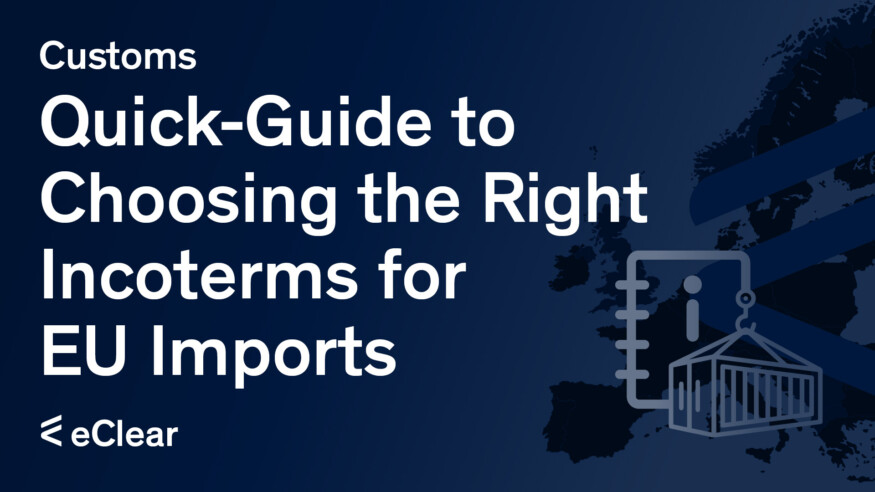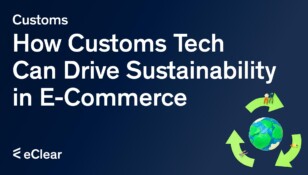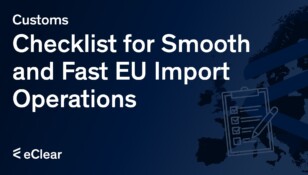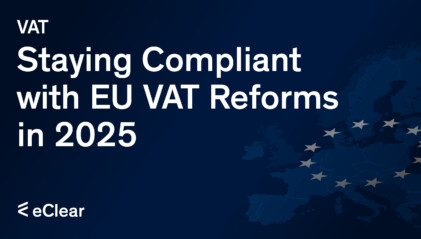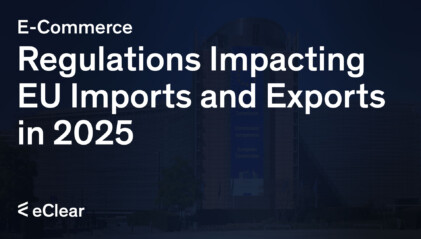The Role of Incoterms in Sales Agreements
They cover key aspects like delivery locations, transportation arrangements, insurance, and customs handling. Incoterms help clarify who pays for duties and taxes, ensuring smooth international transactions.
Created by the International Chamber of Commerce, the latest version is Incoterms 2020, which includes 11 terms for different modes of transport.
These terms are used globally and should be included in sales agreements and export invoices.
The Most Common Incoterms
In this overview, we’ll introduce the most common Incoterms used for EU imports.
You’ll find brief descriptions of these Incoterms, along with their pros and cons, to help you choose the best option.
EXW (Ex Works)
The Ex Works (EXW) incoterm applies to all forms of transport.
It requires you to make the goods available at your location or another specified place. The buyer is responsible for all
transportation costs and assumes the risks once the goods leave your premises.
Pros:
- All risks and costs transfer to the buyer after leaving your premises.
- Preferred by some countries, including Australia, Canada, and New Zealand.
Cons:
- You lose control over the care and transportation of goods once they leave your premises.
- The buyer must handle all customs clearance procedures.
FOB (Free on Board)
The Free on Board (FOB) incoterm applies to ocean freight. You are responsible for all costs until the goods are loaded onto a vessel at the named port. Once loaded, the buyer assumes all risks and costs for the onward shipment.
Pros:
- You control the goods, their transportation, and customs clearance until they are loaded onto the vessel.
- Preferred by some countries, such as India, Pakistan, and Sri Lanka.
Cons:
- You lose control over the goods’ care and transportation once they are loaded on the ship.
CFR (Cost and Freight)
The Cost and Freight (CFR) incoterm applies to ocean freight. You are responsible for the costs of transporting goods to the named destination port. However, the buyer assumes all risks once the goods are loaded onto the vessel.
Pros:
- You handle the transportation costs to the port of destination, which may offer better rates for the buyer.
- Control over the transportation process up to the port of destination.
Cons:
- The buyer assumes all risks once the goods are loaded, including potential damages during the ocean transit.
- You are not responsible for the goods once they leave the vessel, limiting control over final delivery.
DDP (Delivered Duty Paid)
Delivered Duty Paid (DDP) is an incoterm used for all forms of transport. You take full responsibility for delivering the goods to the buyer’s location, covering all transportation costs, duties, and taxes. The buyer has minimal obligations in this arrangement.
Pros:
- You control the entire logistics process, from transport to customs clearance.
- Offers a seamless experience for the buyer, as all costs, duties, and taxes are included upfront.
Cons:
- High responsibility and cost on the seller, including duties and potential delays in customs.
- Greater complexity in managing multiple regulatory requirements across borders.
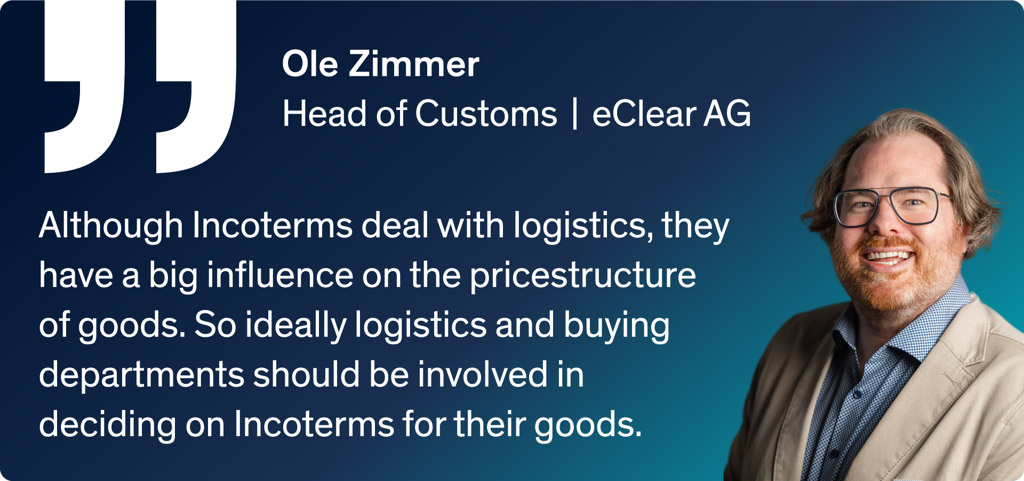
DAP (Delivered at Place)
DAP applies to all transport modes. The seller is responsible for delivering the goods to a named place, typically the buyer’s location or another agreed destination. Unloading is the buyer’s responsibility. The buyer also handles any import customs clearance and associated duties after delivery.
Pros:
- Seller is responsible for transportation and delivery up to the specified place.
- The buyer only takes responsibility once the goods arrive, simplifying logistics.
- Ideal for buyers with the means to handle unloading at their location.
Cons:
- Buyer must arrange for unloading, which may require specific equipment or facilities
- Seller bears all risks and costs until delivery, increasing potential liability
- Import duties and customs clearance are the buyer’s responsibility
CIF (Cost, Insurance, and Freight)
CIF applies to ocean freight. The seller is responsible for delivering the goods to a port, paying for the transport, and covering insurance until the goods reach the destination port.
The buyer assumes the risks and costs once the goods arrive at the destination port.
Pros:
- Seller covers freight and insurance costs.
- Buyer is protected by seller’s insurance during transit.
- Clear division of responsibilities.
Cons:
- Buyer takes on all risks once goods reach the port.
- Insurance may not cover all risks.
- Limited control for the buyer over transportation.
Incoterms for Specific Scenarios
In this section, we’ll look at Incoterms suited to specific shipping scenarios. Whether you’re handling small parcel shipments, bulk goods, or navigating customs complexities, the right Incoterm can make a big difference. Let’s explore the best options for each case.
Small Parcel Shipments: Best Incoterms for E-commerce and Smaller Deliveries
For smaller e-commerce shipments, terms like DAP (Delivered at Place) and DDP (Delivered Duty Paid) are often the best options.
These Incoterms make the buyer’s experience smoother by handling most, if not all, of the transportation and customs duties, ensuring that parcels are delivered to the final destination without additional costs at the point of delivery.
They are ideal for small, fast-moving shipments where efficiency and customer satisfaction are key.
Bulk or High-Value Goods: Incoterms for High-Risk or Bulk Imports
When dealing with bulk or high-value shipments, CIF (Cost, Insurance, Freight) and FOB (Free on Board) are more suitable. These Incoterms allow for clear delineation of risks and responsibilities.
CIF is particularly useful as it includes insurance, protecting high-value goods in transit. FOB, on the other hand, gives the buyer control over the shipment once it’s on board, making it a good fit for companies looking to manage the transportation risks themselves.
Customs-Centric Considerations: Choosing the Right Incoterms Based on Customs Requirements
For imports where customs clearance is a key concern, DDP (Delivered Duty Paid) and DAP (Delivered at Place) offer a high
level of control and predictability. With DDP, the seller handles all customs duties and taxes, ensuring compliance and smooth delivery. This requires extensive knowledge on the destination market and customs regulations.
DAP is also a good option when the buyer prefers to handle local customs and duties, but still wants the seller to manage the shipping. Both terms reduce surprises at the border and help ensure smooth cross-border transactions.
Expert Insights on Incoterms and Customs Compliance
For EU imports, it is crucial to select terms that clarify responsibilities for compliance, avoiding misunderstandings and
ensuring fast, compliant clearance. By using appropriate Incoterms, businesses can streamline the customs process and avoid unnecessary complications when entering the EU market.
- Always confirm Incoterms in writing: Ensure that the agreed Incoterms are clearly outlined in your sales contracts to avoid any disputes later on.
- Work closely with logistics partners and customs brokers: Collaborate with your shipping and customs experts to make sure everyone understands their responsibilities, minimizing unexpected costs and delays.
- Ensure all team members are informed: Make sure that your entire team, from sales to logistics, understands the agreedupon Incoterms and their implications to keep operations smooth and aligned. Clear communication prevents misunderstandings.
- Prepare accurate and complete documentation: Ensure that customs declarations and invoices are filled out accurately,
reflecting the correct Incoterms. Missing or incorrect details can lead to costly delays or penalties. - Understand each country’s VAT and duty requirements: Be aware of the varying import taxes and duties in different EU countries, as Incoterms will influence who is responsible for paying them.
- Factor in customs clearance times: Different Incoterms can impact customs processing times, especially if responsibilities for duties and taxes shift between buyer and seller. Be sure to plan for these contingencies.
Interesting links and further reading
Let’s stay in touch!
Stay up to date on the latest market trends, best practices and regulatory changes affecting cross-border trade by following us on LinkedIn.
